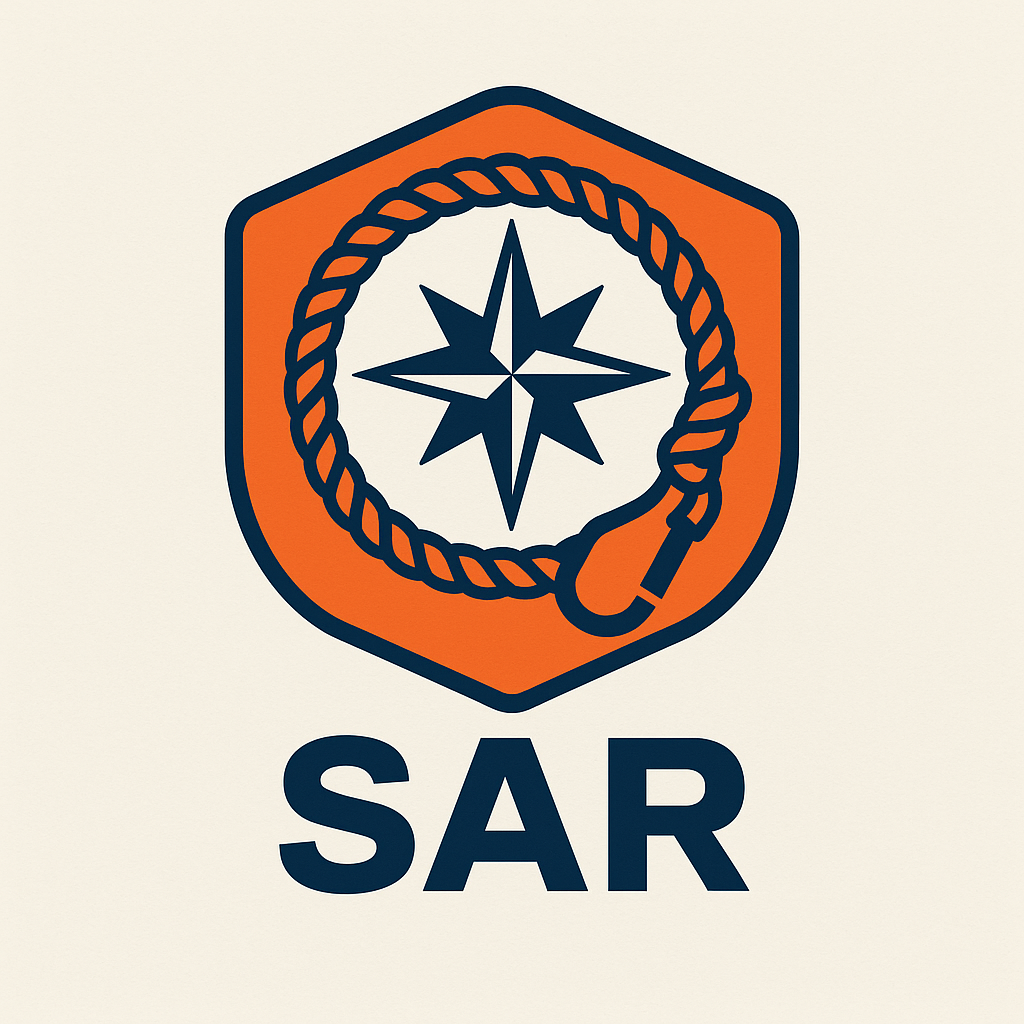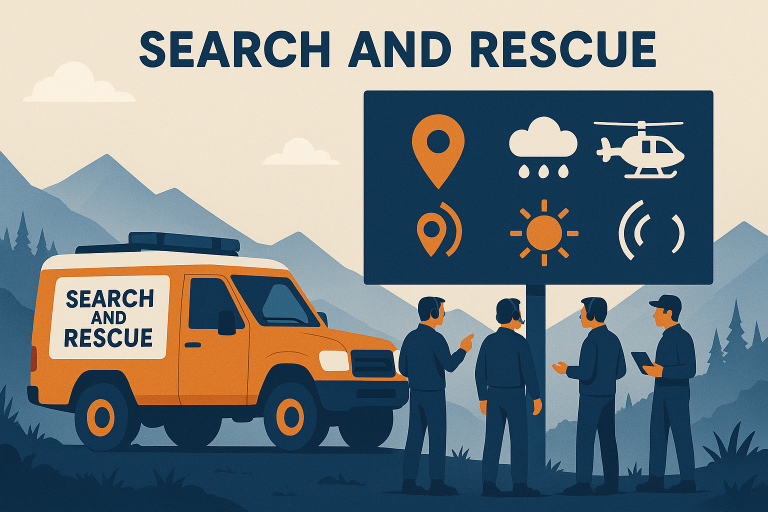One of the primary reasons a Search and Rescue team gets called is that someone has gone into the wilderness without the 10 Essentials that should be taken outdoors. Often situations could have been easily avoided if the person had made simple preparations. Not all circumstances are because of this and sometimes things happen to even the most skilled and prepared person, but here are some basics that anyone venturing out should take with them.
#1 Navigation
Always take a way to know where you are. A map and compass are tried and true, don’t run out of batteries but take some practice to get good at. GPS, if it’s your phone or a dedicated GPS device is great, but again you need to know how to use it and check the batteries and have backups before you set out. Good tools you know how to use to navigate should always be part of your 10 Essentials.
#2 Sun Protection
Exposure to the elements is often what takes someone just being lost to being in danger. Protection from the sun is important, sun screen hat and appropriate clothing (sun hoodie, long pants, etc) can keep you comfortable and protected from sunburns and dehydration.
#3 Insulation
Again, exposure to the elements is dangerous, keeping good insulating clothing with you is important. Sunny perfect days can change to cold wet raining days fast. Insulation whether it be jackets, sleeping bags or blankets is a 10 Essentials must have. Many SAR calls are for folks who started in the morning on a bright day but by the afternoon or evening a cold front is moving in with below freezing temperatures and they are unprepared. Rain jackets, warm jackets, gloves and hats should all be considered. Check the weather before you leave!
#4 Illumination
Sometimes trips take longer then expected and you are out at night. This is okay as long as you are ready for it. Taking good lighting, headlamps and flashlights, helps you stay on the trail or even if you do need help are excellent signaling devices at night.
#5 First-aid Supplies
Things happen, scratches bumps and bruises. Having a simple first aid kit can really help keep a small cut from becoming a major issue on a trip. There are lots of ready made kits available to take with you or you can put one together yourself, but make sure you have the basics.
#6 Fire
The ability to make fire can be a huge resource on many levels. It bring comfort and warmth when you are tired and can be a great signaling method. Have a fire kit that includes a light, matches and a striker. Keep with it some tender to make starting a fire in wet conditions easier. Always be careful though about where you start your fire though, poorly managed and it can become dangerous destructive force. Just ask Smokey
#7 Repair Kit and Tools
Having some simple tools can change a whole situation. Keeping a multi tool or knife gives you options. Tape can help with gear repairs or making improvised splints for injured arms or legs. A small hand saw can make getting firewood much easier. Have patches for clothing, tents or sleeping pads can make the difference of a dry warm night or a cold miserable night. Knowing your gear and keeping the supplies to repair it is part of the 10 Essentials.
#8 Nutrition
Bring calorie dense snacks with you. If trips take longer then expected keeping energy up with food can be critical to help you hike that extra bit or keep you warmer.
#9 Hydration
Water as we all know is key to survival. Keeping extra water and a way to filter more water can be all the difference. Water is helpful in so many ways which is why it’s part of the 10 Essentials. In hot weather it is key to keeping you hydrated and keeping heat exhaustion or heat stroke away. Dehydration can help lead to poor decision making and confusion which in the wilderness can be the start of a series of bad decisions and trouble.
#10 Emergency Shelter
Exposure to the elements can be harsh. When caught out having protection from Sun, wind, rain, snow or other elements can keep you alive. At minimum having a space blanket can trap warmth and protect from moisture. A tent or bivvy and give you a insulated dry place to wait out a storm and help prevent things like hypothermia. In many scenarios, especially those where a subject is caught out for longer time periods, having shelter is the number one priority for survival, earning it’s spot on the 10 Essentials list.
What Other Gear?
This list is all essential gear that you should have with you anytime you go into the wilderness. For Search and Rescue Essential Gear will include more items then whats listed here. Essential Search and Rescue Gear will include specialized gear and extra equipment for accomplishing the mission.



Pingback: What Is Search and Rescue - SarTalk
Pingback: Search and Rescue Essentials – A Beginner’s Guide to the 24-Hour Pack - SarTalk